Menu
A clutch of schools in Nappy Valley are welcoming new heads this month. Gillian Upton profiles the newcomers on how they plan to make a difference.
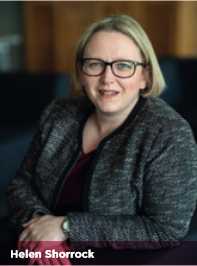
What do you love about your new school?
I am proud of our established tradition of success that encourages our students to be independent, articulate young women who take power and control over their lives in an informed and intelligent way. There have been so many moments this year where I have been hugely proud of our school community. Hearing the Chamber Choir sing at Cadogan Hall, listening to our Year 8s asking important questions of Helen Pankhurst, great-granddaughter of Emmeline Pankhurst, when she visited in May, our para-sports team being awarded Wandsworth Young Team of the Year and watching our 17 Wimbledon ball girls training with dedication and precision.
What is your vision for Burntwood?
Burntwood’s motto has always been to provide the “best education today for the women of tomorrow”. I feel this is just as relevant today as it was over 30 years ago when the school was founded. Our primary aim is to ensure that our young people, whatever their aspirations, have the qualifications, knowledge and wider skills they need to thrive and succeed in a complex society and rapidly changing world.
What changes are you hoping to make?
Burntwood School is a UNICEF Rights Respecting Gold school. This prestigious award recognises our school’s commitment to students’ rights. We can use this to further develop how our students support children – in our wider community and around the world – to exercise their rights just as our students do.
What challenges do you face?
A main challenge today for young people is the rapidly changing world that they live in. Technology, including the use of social media, is a challenge for us all and how we teach young people to use it and interact with it. We must convey its positive applications as well as ensuring students know how to safeguard themselves against the well-documented negative aspects of social media.
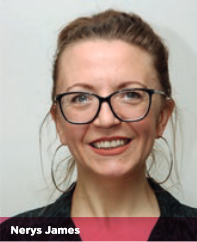
What is your vision for the Sixth Form at Ernest Bevin?
My vision is a large successful sixth form that delivers the best academic outcomes for all students, regardless of their pathway. A sixth form that prides itself on receiving outstanding student voice, because this period should be about more than just grades; one that shapes the whole individual, supporting them to learn about wellbeing, life skills, the world of work and helping them create their own vision for the life they want to achieve; one that actively engages with the local community to become a beacon in the local area for who we are and what we represent.
What changes are you hoping to make?
My job is to now raise the profile of our sixth form, ensuring we build on our current successes. We will start with providing varied subject pathway options to cater for all our students, offering excellent teaching in all subjects; we will build on the sixth form community, ensuring students feel part of our inclusive school by putting them at the heart of all we do. It is about building the sixth form of the future, gradually evolving to reach our destination.
What general challenges do you face?
One of my greatest personal challenges will be recognising that my vision of the sixth form will take time to build – step by step, student by student, week by week. We cannot escape the fact that education, like many other sectors, is currently in a very tight financial climate, so we need to deliver our vision while ensuring we spend money wisely, appropriately and in areas which will have the greatest impact. As Director of Sixth Form, I will be looking at alternative ways to source financial support and hope our alumni and community links will be willing to work with me initially.
What specific challenges do you face due to the age group?
I am fully aware of the diverse and complex challenges our young adults face: forming personal relationships, tackling prejudice, overcoming economic concerns, a rising crime rate, pressures to achieve future goals, access to illegal drugs and peer pressure. The backdrop of social media and having an online presence in today’s contemporary society though, means our young adults are at greater risk. It is more important than ever to educate our students about these risks and challenges, to provide them with the tools they need for the ever-changing world which they face. We cannot wrap our students in cotton wool; we must equip them with knowledge and skills to tackle challenges with confidence and courage, and most importantly we must trust them to do so.
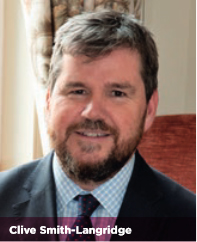
What do you love about your new school?
I love our ‘country prep school’ ethos, right in the middle of Wandsworth – long days into which we pack a great deal: sport, music, drama and art on top of the daily academic rigours, which give the boys a really rich education. It also means a relaxed but respectful environment where all staff know each boy well.
What is your vision for Northcote Lodge?
I want to build on the successes of the past and ensure that it remains the happy, holistic school that it has always been. We will continue to focus on educating the whole boy and giving each one the best possible start to his educational journey, striving continuously for excellence right across the broad curriculum.
What changes are you hoping to make?
I want to improve our provision for those who find academic work challenging and to do more to stretch the most able. We are also improving the preparation for the plethora of pre-tests that now exist for 13+ places, and we will utilise to our best advantage the power of technology within teaching and learning.
What challenges do you face?
Along with most other preparatory schools, we face the challenge of the increased pre-testing of young children for 13+ places; senior schools are placing a great deal of pressure onto younger and younger minds.
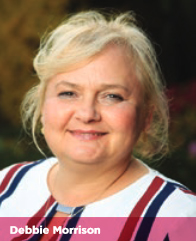
What do you love about your new school?
I was drawn to the school because of the ethos and emphasis on character development. The school has very strong links with the families of their pupils and I believe wholeheartedly in a system whereby school and home work collaboratively for the good of the child. We also celebrate children’s achievements that fall outside of the typical academic subjects, recognising and applauding all successes, be they in sport, languages, art, drama and music or in areas that are not measurable ‘on paper’.
What is your vision for Oliver House?
To continue to build on the successes of the school and maintain the high standards that are being achieved. My aim is for children to leave Oliver House and enter into the next phase of their education as bright, confident and happy individuals who make good choices. Making a stand for what you believe is right is difficult for adults, so a fair challenge for those about to embark on a world of peer pressure! To nurture this robust, positive mindset, the school needs to have provided a full and rich programme that enhances personal development in all areas of a child’s learning.
What challenges do you face?
Many people feel that academic excellence and strong character development cannot be achieved simultaneously, but my challenge is to prove the sceptics wrong! It is entirely possible to embed vital attitudes and life skills while children continue to study and flourish academically.
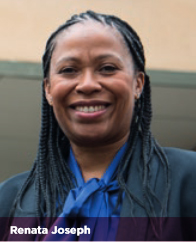
What do you love about your new school?
Staff and pupils genuinely care about each other and relationships matter. All staff understand how their roles impact learning and achievement for pupils, and do the very best job they can, day in, day out. Pupils are confident – but not arrogant – and want to do well. My school is one with untapped potential and I believe I can make a difference. I love that it’s co-educational – reflecting life – and that it’s inclusive.
What is your vision for the school?
As a proudly Christian school, our vision is underpinned by our mission statement ‘Glorifying God through outstanding enjoyable education’. We want to be a great and exceptional school, to stand apart from the rest, to be known to do things differently so that learning experiences in and beyond the classroom are memorable and effective, leaving pupils with a well-rounded education; our Christian context results in pupils being proud of their faith and beliefs, to behave in a respectful and responsible way, and we help and challenge pupils to be socially mature and independent.
What changes are you hoping to make?
A greater emphasis on challenge for pupils at all levels, with a particular focus on higher attaining pupils and their academic and personal development. To raise aspirations of all pupils, so they become confident learners irrespective of their background.
I want to establish partnerships with other schools – collaboration is key. We want to help other schools become better, while at the same time learning from others. Our local community is important to us – hosting events and engaging with charities, community groups and local businesses.
What challenges do you face?
Like every school in the country, we face shrinking resources in real terms. In the current climate it is incredibly challenging to create the conditions where teachers and support staff can fulfil their roles so pupils can achieve. My hope is that nationally there will be a review of funding into education and investment. Our children are this country’s greatest and best resource.
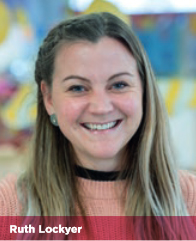
What do you love about your new school?
I particularly love the diversity and how the girls blossom from an early age. I am fully aware that the world is a small place and it’s important children develop an understanding and awareness of the wider world in which we live. These girls will go far in life because they start with open and curious minds.
I also love the school’s small size but huge facilities and excellent staff. The teamwork is brilliant. There are no silos; we take a totally integrated approach to enriching the girls and our shared mission to help them to learn without limits.
What is your vision for Early Years?
To ensure every girl becomes a confident learner who knows and values herself. By the time my girls leave me, they are independent and know how they learn, which helps them develop and progress.
What changes are you hoping to make?
My ultimate ambition is to build the most comprehensive ‘wilderness’ and outdoor space this part of London has ever seen, giving girls the option to be outside as much as the weather allows. I am creating an Early Excellence Unit, with the whole of EYFS staff working as an integrated team across Nursery and Reception.
What challenges do you face?
When making changes we need to allow time and training for all staff and to find a balance, ensuring our girls’ needs are met now while we develop our future plans.
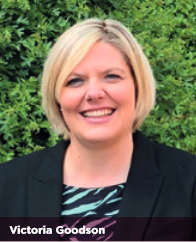
What do you love about your new school?
I was instantly drawn to the school’s warmth and wholehearted commitment to excellent teaching and learning.
What is your vision for the Prep School?
My vision is to lead a happy, forward-thinking school which leads the way in providing an ambitious, inspiring and creative education for our girls. With ‘Girls First’ at the forefront of what we do, I am committed to ensuring that we provide excellent teaching and learning opportunities, and that we equip girls with the confidence and skills they need to be happy, strong and resilient learners.
What changes are you hoping to make?
I am introducing a regular lecture series which, over 2019/2020, will focus on inspiring and empowering girls in STEM (Science, Technology, Engineering and Mathematics).
What challenges do you face?
Environmental responsibility is incredibly important to the future of our pupils and I am keen to ensure that our girls grow up with an intrinsic commitment to their environmental responsibilities.
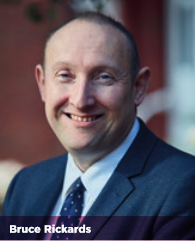
What do you love about your school?
Hall School Wimbledon thrives on its inclusive, independent nature. We welcome children aged four to 16 (rising to 18 from September 2020, with plans for a Nursery too), and we offer outstanding pastoral care, small class sizes, caring staff, and a commitment to co-education, which all comes together to draw a circle of care around each child. Every pupil is known, valued and able to develop his or her talents, all central to the school’s ethos since it was founded in 1990, and recognised in our recent OFSTED inspection, which highlighted the wonderful education we provide for all the children in our school.
What is your vision for The Hall?
Since joining the Chatsworth Schools group in September 2018, the school community has benefited from increased investment in facilities. We are able to draw on the expertise of their incredibly experienced team, whose backgrounds include teaching and management at some of the country’s leading independent boarding and day schools.
Together, we have recently unveiled exciting plans to enable Hall School Wimbledon to deliver its vision of being an all-through school. By September 2020, children aged four to 16 will be educated on one site, a stone’s throw from Wimbledon Village and the Common.
What changes are you hoping to make?
Our school must evolve while building upon its broad and stimulating academic curriculum. This year, the new Deputy Head (Academic) will work with teachers and heads of department to further improve the quality of teaching, learning and academic achievement.
The plans to integrate the Junior and Senior Schools into one campus will provide opportunities for older and younger pupils to work alongside each other – peer mentoring, book and reading clubs, and in sport, music and drama. There is huge investment being made in technology, with all classrooms being equipped with projectors and whiteboards, the continuing development of the libraries for juniors and seniors, and plans for the Sixth Form from September 2020.
What challenges do you face?
To manage the extensive upgrade of our facilities. Every classroom at the Senior School will be completely refurbished, light-filled and modern, ready for this academic year. As part of the focus on technology, Google Classroom has already been implemented for all senior pupils. In the pre-prep, there will be a dedicated garden ready for the Junior School’s move at the beginning of September 2020.
The Oberon Fields site (the school’s nine-acre playing fields and pavilion) will be completely redeveloped as a hub for curriculum enrichment, with teaching spaces for outdoor learning, performing arts and cookery. In the pavilion, there will be refurbished changing rooms, a brand new drama, dance and music space, and a teaching kitchen. Outside will be a renovated tennis court, netball courts with an Astro covering for hockey in winter, a new nature trail, orchard, garden allotments and a Forest School area. The pitches will be reconfigured to allow greater use for all the major sports and athletics.
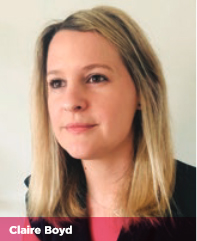
What do you love about your new school?
The girls! You need only spend a few moments in their company to feel their effervescent energy; their appetite for learning is utterly intoxicating. Obvious additional attractions to the school lie in its reputation and eminence in its innovative, original and successful approach to education for girls.
What is your vision for the Junior School at Wimbledon High School?
I want the school to be renowned for consistently developing discerning, enterprising, resilient and all-round savvy girls who feel ready to play a central role in the world and compelled to make a difference. The spirit of adventure as an attitude, as well as a state of mind, will characterise the experience of every girl from Reception through to Year 6.
What changes are you hoping to make?
I am keen to ensure that all aspects of teaching and learning are firmly rooted in first-class pedagogy and best practice. I see it as incumbent on the Junior School to bring a pioneering fearlessness to the delivery of exciting and aspirational opportunities, both in the classroom and as part of an ambitious co-curricular programme.
What challenges do you face?
The challenges I face sit more as opportunities. The ambition to position the Junior School as the finest purveyor of innovative, uncompromising and spirited education for young girls will require each pupil to be known and cared for as an individual. Nurturing and developing positive relationships with all members of the school community will be key and I am really looking forward to growing and embedding these over the coming months